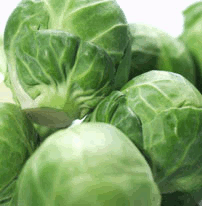Are there any foods that can help prevent acne?
Acne is a condition that affects the majority of adolescents in Western societies. While some people find that their skin problems resolve as they enter into adulthood, acne still continues to affect many: 40% to 54% of those over 25 are estimated to have facial acne to some extent, with it continuing into middle age for an estimated 12% of women and 3% of men. So, if you have acne, regardless of your age, you are not alone.
Acne is a problem that most research suggests to be hormonally related. Shifts in one particular family of hormones, the androgen family, seem especially important in the development of acne.
There are no foods that cause acne and, unfortunately, no foods that can cure it. For a long time, researchers claimed that there was no link whatsoever between diet and acne, yet recent studies lend some support that there may be a potential connection.
For example, many healthcare practitioners have suggested avoidance of dairy products when acne is present, yet it was only recently that a study's results finally lent support to this practice. In this study, researchers evaluated teenage diet and acne diagnosis in tens of thousands of women in the Nurse's Study II and found an association between intake of milk (both total milk and skim milk consumption) and acne. The researchers suggested that the presence of hormones and other bioactive molecules in the milk could be the reason that milk consumption was found to related to acne development. If this is true, this may be another reason for those who consume dairy products to choose certified organic dairy products from organically raised cows, since they are not given hormone drugs.
Very high doses of vitamin A are sometimes used in the treatment of acne, but these doses would be impossible to achieve through food under any circumstance. Yet, dietary vitamin A, as well as vitamin E, are important to skin health. In a recent study, the lower the levels of plasma vitamin A and vitamin E (reflective of many factors, including dietary intake), the more severe was the acne condition. While further research will hopefully shine more light on this subject, it does suggest that there may be an interrelationship between ensuring that you get adequate amounts of these fat-soluble vitamins in your diet and skin health.
The skin needs good hydration, ample B vitamins, plenty of vitamin E, and the support of essential fatty acids - especially omega 3 fatty acids - to stay healthy. You can use the Essential Nutrients section (http://www.whfoods.com/nutrientstoc.php) of our website to look up any of the nutrients above and find the good, very good, and excellent food sources of these nutrients. You can also use our Recipe Assistant (located on our recipe page at http://www.whfoods.com/recipestoc.php#recipes) to find recipes that are high in the above nutrients.
Another fascinating new area connecting diet to acne involves excess consumption of refined carbohydrates. We already know that too many processed carbs can lead to insulin-regulating problems and overproduction of insulin-like growth factor (IGF-1). What we've recently learned is that too much IGF-1 can also cause production of too many keratinocytes. Since overproduction of this skin cell type is one factor clearly associated with the risk of acne, there may be an important connection here - and one more reason to watch your processed carbs. Again, skin health may not just be related to dietary factors, but they may play a role. Other things that can positively affect skin health include good circulation (again, another reason to support the importance of exercise) and routine cleansing. Additionally, keeping stress to a minimum may also be important since research has suggested that acne severity may be exacerbated during times of high stress.
References
Adebamowo CA, Spiegelman D, Danby FW, Frazier AL, Willett WC, Holmes MD. High school dietary dairy intake and teenage acne. J Am Acad Dermatol. 2005 Feb;52(2):207-14.
Chiu A, Chon SY, Kimball AB. The response of skin disease to stress: changes in the severity of acne vulgaris as affected by examination stress. Arch Dermatol. 2003 Jul;139(7):897-900.
Cordain L, Lindeberg S, Hurtado M, Hill K, Eaton SB, Brand-Miller J. Acne vulgaris: a disease of Western civilization. Arch Dermatol. 2002 Dec;138(12):1584-90.
El-Akawi Z, Abdel-Latif N, Abdul-Razzak K. Does the plasma level of vitamins A and E affect acne condition? Clin Exp Dermatol. 2006 May;31(3):430-4.
Shen, S., E. Wertheimer, S. R. Sampson, and T. Tennenbaum. "Characterization of Glucose Transport System in Keratinocytes: Insulin and IGF-1 Differentially Affect Specific Transporters." J Invest Dermatol 115, no. 6 (2000): 949-54.






